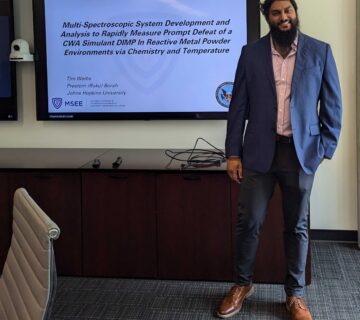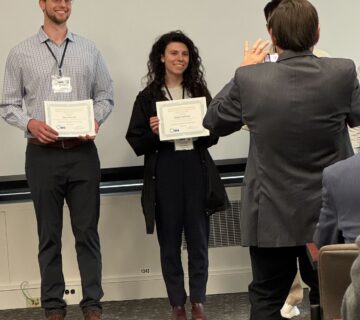Andrew Kim, an undergraduate in the Weihs Group, received an internship in the Excellence Research Internship Program hosted by the École Polytechnique Fédérale de Lausanne (EPFL) in Switzerland. Andrew will be in Professor Roland Logé’s lab “Thermomechanical Metallurgy Laboratory (LMTM)” at the Neuchatel Microcity associated campus. He plans on working on the effects and modeling of different rolling conditions on the intermetallic fragmentation of Aluminum based alloys. Congratulations Andrew!
Title:
Studying and Modelling Thermo-mechanical impact of hot rolling and cold rolling processes on the Fragmentation of intermetallics in Aluminum alloys
Abstract:
Aluminum alloys are well recognized in the automotive industry due to their low density, impressive mechanical properties like bendability, and favorable conditions in the production of car body panels. Recent studies revealed that employing recycled products rather than the production of primary alloys decreases the emission of carbon dioxide and energy consumption. However, the impurities present within the recycled alloys affect the precipitation, and recrystallization through the Particle Stimulated Nucleation and Zener Pinning mechanisms. Consequently, they change the final texture of the alloy. The most important thermo-mechanical processes in the automotive industry are hot rolling and cold rolling as concurrent phenomena including precipitation, recrystallization, and texture happen during these processes. This study seeks to better understand and connect the effect of the chemical composition of different Aluminum alloys, and various rolling conditions such as the rolling speed and the reduction percentage in the sheet thickness on the intermetallics size distribution after their fragmentation. Literature states that rolling process fragments intermetallics into smaller pieces along the rolling direction. Therefore, we seek to develop a computational model that will unveil the impact of each studied rolling condition on the percentage of intermetallics fragmentation, their number density, and their size distribution in alloys with different chemical compositions.



